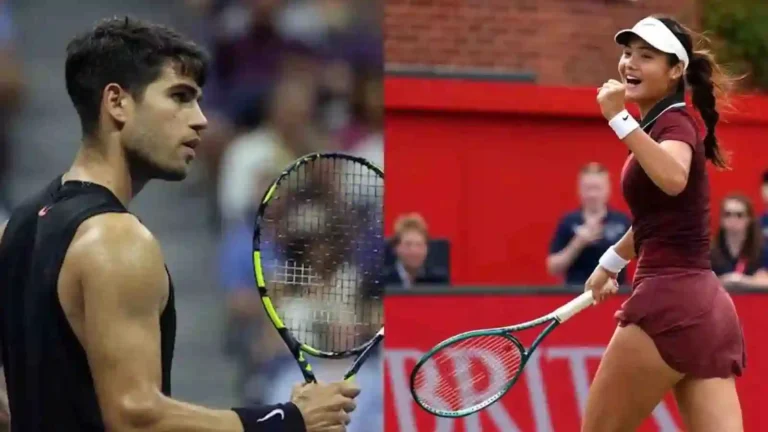India Refuse to Accept Asia Cup Trophy from Mohsin Naqvi: What Really Happened
When India defeated Pakistan by five wickets in the Asia Cup final in Dubai, fans expected a big celebration with fireworks, music, and the shining Asia Cup trophy in Indian hands. But the night ended in a way nobody could have predicted. The Indian cricket team refused to accept the trophy from Mohsin Naqvi, the president of the Asian Cricket Council (ACC), chairman of the Pakistan Cricket Board (PCB), and Pakistan’s interior minister.
This unexpected moment sparked debate across the cricketing world and raised questions about politics, sportsmanship, and respect. Let’s break down exactly what happened, why it matters, and what it could mean for future tournaments.
What is the Asia Cup
The Asia Cup is a major cricket tournament where top Asian teams like India, Pakistan, Sri Lanka, and Bangladesh compete. Winning it is a big deal because it brings pride, ranking points, and global recognition. The trophy is usually handed over by the Asian Cricket Council, the governing body for cricket in Asia.
For fans, the Asia Cup trophy is not just metal and wood—it’s a symbol of dominance in Asian cricket. That’s why the controversy around India’s refusal has become such a big headline.
Why Did India Refuse the Trophy
The official reason given by BCCI secretary Devajit Saikia was simple: India did not want to receive the trophy from Mohsin Naqvi, who holds a political post in Pakistan. The team felt it would send the wrong message to accept the award from someone directly involved in Pakistan’s political and cricket administration.
This wasn’t about the trophy itself. The Indian side made it clear they wanted the cup and medals to be sent to them later. The issue was only about the presenter.
The Delay and Drama
The final match ended around 10.30 pm local time after a nail-biting finish. Normally, the presentation ceremony begins within minutes. But on this night, fans had to wait until almost midnight.
Why? Because India had taken a stand. Reports suggested officials were trying to negotiate behind the scenes. When the ceremony finally started, Indian players walked up to collect their individual awards from other dignitaries, but they did not acknowledge Naqvi, who stood on stage without applauding.
Pakistan captain Salman Agha accepted the runners-up cheque. Then, in a shocking moment, an official quietly removed the Asia Cup trophy from its display stand and walked away with it.
The Players’ Reaction
Indian captain Suryakumar Yadav expressed his disappointment in the press conference. He said he had never seen a champion team denied their trophy like this. For him, the real trophies were his teammates and support staff who fought hard throughout the tournament.
This reaction shows the unity of the Indian side. They took the decision together and stood by it, even though it meant missing the traditional photo-op with the glittering cup.
What is the Asian Cricket Council (ACC)
The ACC is the body that runs cricket in Asia. It organizes events like the Asia Cup and ensures fair play between member nations. Normally, the president of the ACC presents the trophy. But in this case, since Mohsin Naqvi holds high positions both in Pakistan’s government and in cricket, India saw a conflict of interest.
For simple clarity:
- ACC = Asian Cricket Council, the governing body.
- PCB = Pakistan Cricket Board, controls cricket in Pakistan.
- BCCI = Board of Control for Cricket in India, the richest and most powerful cricket board in the world.
Political Tension in Cricket
Sports and politics often cross paths. India and Pakistan have a long history of political conflict, and that tension spills into cricket too. Over the years, bilateral cricket series have been suspended, and the two teams now only meet in ICC or ACC events.
By refusing the trophy, India sent a strong political and symbolic message. They showed they will not accept recognition tied to a Pakistani political figure.
ICC Conference and Future Plans
Devajit Saikia confirmed that India will raise a strong protest at the upcoming ICC conference in Dubai. The International Cricket Council (ICC) is the global governing body of cricket. If the issue escalates, it could affect not just the Asia Cup but future multi-nation tournaments as well.
Reactions from Pakistan
Pakistan officials and players were not happy. Coach Mike Hesson and captain Salman Agha criticized India’s stance, calling it unsporting. But India remained firm, refusing to shake hands with Pakistani players throughout the tournament and avoiding symbolic gestures that could be seen as friendly when political relations remain tense.
Want more exclusive updates like this?
Why This Story Matters to Fans
Cricket is more than just a game in South Asia—it’s an emotion. When fans watch their team lift a trophy, it feels like a shared national victory. That moment was missing in Dubai. Many Indian supporters in the stadium stayed back late into the night, hoping to see their team with the cup. Instead, they watched players celebrating with an imaginary trophy.
The story also raises bigger questions:
- Should politics stay out of sports?
- Can cricket tournaments survive without cooperation between India and Pakistan?
- What should governing bodies like the ACC and ICC do to prevent such controversies in the future?
Final Word
India’s refusal to accept the Asia Cup trophy from Mohsin Naqvi wasn’t about disrespecting cricket—it was about sending a message. The team stood united, choosing principles over protocol. Fans may have missed the traditional moment of celebration, but they gained a deeper story about national pride and identity.
The Asia Cup 2025 will be remembered not just for India’s thrilling win, but for the night the champions walked away without their prize.
Share your favorite moments with us on Instagram!
Don’t keep this to yourself—share it with a friend!
























